| This August 14-16th @John Budyak will be attending the America East Small Business Lenders Conference in New York. Connect with John to discuss your goals in the SBA lending space and explore our technology and services we provide. |

Conference
| This August 14-16th @John Budyak will be attending the America East Small Business Lenders Conference in New York. Connect with John to discuss your goals in the SBA lending space and explore our technology and services we provide. |

United States
Head of Credit Services, North America
Conference
| Join Jeff Piotrowski and David Traverso at the Private Equity Forum in Chicago this July 30-31st to talk more matters in the private equity investment opportunities all around the world. Looking forward to connecting! |
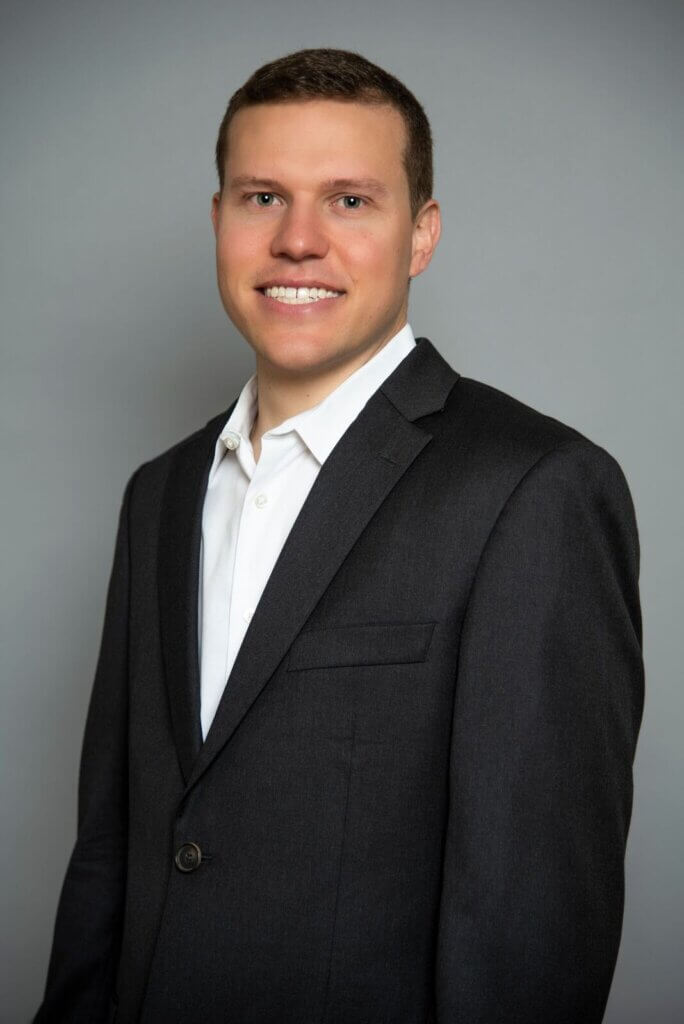
North America
Managing Director, Sales at Alter Domus North America
News
Our sector heads Tim Toska (Private Equity), Greg Myers (Private Debt), Anita Lyse (Real Assets), give their first-half reviews as well look ahead at potential game plans for the second half of the year.

Private Equity in H2 2024: a waiting game
Tim Toska
Global Sector Head, Private Equity
What to watch out for H2 2024:
The rebound in private equity M&A and fundraising anticipated at the beginning of 2024 has yet to materialize, but dealmakers remain hopeful that momentum will build in the months ahead.
The PE industry entered 2024 on the back of a challenging 24 months where buyout and exit deal value declined for two consecutive years as inflation and rising interest rates drove up deal financing costs, decreased appetite for risk and spark dislocation in pricing expectations between buyers and sellers.
At the end of 2023 hopes built that cooling inflation would lead to a series of interest rate cuts in 2024, the first coming as early as May 2024, but hawkish central banks have been reluctant to cut rates early, with the US Federal Reserve signaling that there may only be one interest rate cut this year.
Deal activity green shoots
Slower than anticipated rate cuts have put the expected rally in PE deal activity on hold, but even though many dealmakers have opted to sit tight through the first six months of the year, buyout and exit activity has shown some early green shoots, putting the market in a better position than it was 12 months ago.
According to White & Case figures, global buyout deal value for Q1 2024 came in at US$165.73 billion, ahead of the US$144.65 billion posted in Q1 2023. Exit value also improved year-on-year, but only marginally, up from US$57.48 billion in Q1 2023 to US$59.17 billion over the first three months of this year.
A rally in equity markets and the reopening of the IPO market have helped to kickstart PE exits back into life, according to Bain & Co, with jumbo IPOs such as EQT’s US$2.6 billion listing of Galderma Group delivering large exits for managers.
There can be no arguing, however, that exit markets will have to build more momentum in coming months to clear backlogs of unsold companies and improve distributions to LPs.
Bain & Co analysis of funds at 25 of the world’s largest buyout firms shows that the number of portfolio companies held by managers has doubled during the last decade. Managers will be hoping that deal markets fully reopen sooner rather than later so that portfolio companies can be exited and distributions to LPs improved.
Flat fundraising
A rise in exit activity and distributions to LPs will be a catalyst for improving fundraising conditions. According to PEI’s Q1 2024 private equity fundraising report, fundraising over the first quarter of 2024 slipped to US$176.7 billion, down from US$195.5 billion in Q1 2023 and the third-lowest quarterly total since 2019.
LPs haven’t turned off the taps completely. EQT, for example, hit the €22 billion hard cap for its latest flagship fund (and largest ever) early 2024, with other blue-chip names including Cinven, BDT Capital Partners and Apax Partners also closing new flagship funds in the first half of 2024.
With a cohort of big names scheduled to wrap up funds that are currently on the road in the coming months, PEI anticipates that fundraising numbers will improve through the course of the year. This, however, does not mean that fundraising is getting any easier, with a two-tier market emerging as investors focus on making allocations to select managers, while other firms have had to spend longer on the road to coral sufficient support.
Alternative liquidity routes provide breathing room
The slower than hoped for reopening of traditional exit markets has been mitigated by steady activity in the secondaries space, which has continued to provided managers and LPs with opportunities to take liquidity and keep the PE ecosystem ticking over.
According to PJT Partners, secondaries deal volume was robust in Q1 2024, climbing by around 20 percent year-on-year as LPs continued to turn to secondaries markets to realize portfolio assets in a low distribution environment.
A surge in exits via continuation fund structures have also provided a welcome source of liquidity, as managers take up opportunities in a flat exit market to put prized portfolio companies into continuation funds that provide investors with the option to take cash proceeds or retain exposure. According to Pitchbook, 27 continuation fund deal progressed in Q1 2024, more than double the 13 continuation funds deals posted in Q1 2023. Some managers also continue to explore other novel options to unlock liquidity for investors, with NAV finance (where managers take out loans against fund assets) one pathway that has been used to fund distributions.
Patience required
Alternative routes to liquidity are expected to remain a busy area of the market through the second half of 2024, but managers who have had assets lined up for sales through traditional exit routes will be hoping that deal markets do finally reopen.
Big exits such as the US$18.25 billion sale of roofing supplier SRS Distribution to The Home Depot by Leonard Green & Partners and Berkshire Partners do point to signs of strategic sales defrosting. With buyout managers sitting on US$1.1 trillion of dry powder, secondary buyout activity will also have to increase eventually.
Deal markets may be a long way off matching the red-hot activity levels and valuations of 2021, but managers will only be able to hold off on new investments and exits for so long.
As stakeholders accept that interest rates will be higher for longer, and recalibrate pricing expectations and risk appetite accordingly, deal markets should fall back into balance and get the PE industry moving in earnest again.

Gain the upper hand in Private Equity
Choose the administrator trusted by 90% of the top PE firms for our multi-sector expertise, award-winning technology and bespoke operating models.
Private Debt in H2 2024: back to basics
Greg Myers
Global Sector Head, Debt Capital Markets

What to watch out for in H2 2024:
Private debt has been one of the few beneficiaries of climbing interest rates, but while attractive risk-adjusted returns remain on offer, deploying capital will be more challenging the months ahead.
Through the course of 2023 banks and syndicated loan investors pulled back from underwriting in the face of economic uncertainty and rising interest rates, leaving the way open for private debt funds to gain market share and finance larger tickets. According to Barclays, private debt managers financed 84 percent of US middle market leveraged buyouts in 2023, the highest market share in decade.
Private debt managers have not only gained market share, but have also been able to secure highly attractive risk-adjusted returns. With base rates climbing to above five percent, the typical floating rate structures used in private debt loans have produced yields of around 12 percent, according to analysis from FS Investments, putting the class in a position to produce equity-like turns with lower risk.
Margins compress as competition intensifies
Looking ahead to the rest of 2024 and into 2025, slower than anticipated rate cuts will see private debt managers continue to source deals with attractive yields, but the strong tailwinds that carried the asset class in 2023 will begin to ease.
Peak interest rates coupled with soft landings for the US, and European economies have seen momentum return to syndicated loan markets, with banks and investors moving to regain market share ceded to private debt players during the last 12 to 18 months. US leveraged loan issuance was up 63 per cent year-on-year in Q1 2024, while European leveraged loan markets showed gains of 50 per cent year-on-year for the first quarter, according to White & Case figures.
As syndicated loan markets have reopened, borrowing costs have edged lower, with White & Case reporting tighter margins in both US and European leveraged loan market.
Margin compression has filtered into private debt as managers have encountered more competition. Bloomberg reports that average margins for private debt loans issued during the last 12 months have come down by 0.5 percent when compared to margins on loans issued between one and two years ago.
This is by no means a disaster for private debt (direct lending activity remains robust, and issuance has continued to grow through the course of 2024, but tightening margins do point to narrower yields in a more competitive market where private debt managers don’t have it all their own way.
As competition intensifies, private debt managers are expected to sharpen focus on their core middle-market lending franchises. As the large cap end of the market sees more competition, managers will see more flow in the less liquid middle-market, which more insulated from the resurgence in syndicated loan issuance.
Lending to borrowers with Ebitda of less than US$100 million will be an active and attractive part of the market for private debt managers, as there is less competition from syndicated loans for these smaller credits, giving managers more scope to protect margins.
Dealing with defaults
In addition to navigating more competition and tighter margins, the next 6-12 months are also expected to see private debt funds encounter more stress and default risk in current portfolios.
S&P Global Ratings notes that while deal flow remains abundant for private debt managers, defaults and negative ratings are forecast to climb to multi-year highs in 2024, testing portfolios and returns.
An uptick in private debt default rates would place a natural check on the rapid growth of the private debt industry over the last five to 10 years. Investors allocated more than US$200 billion to private debt from the start of 2021 to the beginning of 2024, according to S&P, growing the industry into a US$1.7 trillion asset class.
This has seen the number of private debt managers proliferate, with Preqin tracking more than 1,300 private debt managers in North America alone. Bank retrenchment, low defaults and high yields have created a ‘goldilocks’ environment for new entrants, but as these favorable drivers moderate, a winnowing of the market is set to follow.
Value of scale to drive consolidation
Established managers with proven track records, who have built platforms of scale, will be well positioned to navigate this shift in market conditions.
Smaller players, however, who do not have the scale and fee income to invest in deal origination and distressed credit workout infrastructure will find it more difficult to source transaction flow and protect portfolio value in a more “normal market”.
Big platforms also benefit for the ability to run multiple strategies, such a distressed debt and specialty lending, alongside direct lending, which is the largest strategy in private credit, but is also the most competitive. Firms with more than one strategy are more diversified and have a wider range of options when it comes to raising and deploying capital across economic cycles.
The emerging bifurcation between large private debt platforms and smaller firms is set to lead to a period of consolidation in the asset class, as smaller managers move to team up with larger private markets peers, and big platforms leverage acquisitions to grow assets under management (AUM) and broaden out into new geographies, alternative investments, and investment strategies.
Private debt continues to offer attractive yields and protection against downside risk, but scale and track record will become increasingly important as predictors of manager longevity and performance in the months and years ahead.

Park Square Capital adopts Alter Domus’ Credit.OS
Discover how Park Square Capital’s utilization of Credit.OS transformed their data entry process and enabled the standardization of reporting templates.

Real Assets in H2 2024: holding Steady
Anita Lyse
Global Sector Head, Real Assets
What to watch out for in H2 2024:
Slower than anticipated interest rate cuts have tempered hopes for a revival in real assets investment activity and fundraising in the first half of 2024.
Global infrastructure and energy asset M&A registered a 24.3 percent year-on-year decline in the first quarter of 2024 according to IJGlobal; while JLL recorded a 6 percent year-on-year decline in global real estate direct investment in Q1 2024, and a 34 percent decline on a trailing 12-month period.
Fundraising has been equally challenging, with real estate funds only raising US$19.8 billion in Q1 2024, the lowest quarterly takings since 2011, according to PERE. Infrastructure fundraising performed better, climbing from US$8 billion in Q1 2023 to US$27 billion in Q1 2024, according to Infrastructure Investor. The strong rally in Q1 2024, however, masks what was still the second-worst first quarter for infrastructure fundraising in five years, and the fact that many of the managers that closed funds in Q1 only did so after lengthy periods on the road.
Real assets portfolios, however, have sustained steady performance despite the impact of rising interest rates on investment activity and fundraising.
Infrastructure returns have dropped into single digits, according to the CBRE, but have weathered rising interest rates and continued to deliver predictable, low-risk cash flows for investors. Schroders, meanwhile, sees property total returns registering 4% to 5% in 2024, and rising to between 7% and 9% from 2025 to 2029.
Resilient portfolio performance positions real assets managers well to take advantage of opportunities that will arise when M&A markets eventually do reopen.
Even though sticky inflation has meant that interest rates have not come down as quickly, or by as much, as anticipated at the beginning of 2024, there is confidence that rates have now peaked, with rate cuts on the way. The European Central Bank (ECB) has already trimmed rates in 2024, with the Bank of England and US Federal Reserve expected to follow suit in H2 2024.
As rate cuts begin to come through, real estate and infrastructure dealmaking should finally revive, making it easier for managers to sell assets and return proceeds to investors. Increases in distributions will have a positive impact on fundraising, as LPs get back to reinvesting proceeds in the next vintage of funds.
Through this period of low transaction volumes and low fundraising in real assets, managers have also adapted and kept busy by developing real estate and infrastructure debt strategies, forming joint venture partnerships, and executing deals through separate accounts and deal-by-deal arrangements.
Maturity wall looms
Even if real assets M&A markets are set to rally, one looming cloud on the horizon for managers will be refinancing current borrowings as debt maturities come into view.
According to MSCI figures reviewed by asset manager LGIM, around £130 billion of UK commercial mortgages will mature between 2024 and 2026, with the equivalent figure for the US is sitting in the US$1.4 trillion region.
For many issuers, these maturing debt tranches will have been issued at the peak of the credit cycle, when borrowers could take on relatively high levels of leverage at low financing costs. Borrowers that have to refinance will find that borrowing costs are significantly higher, and that the amount of leverage available is down. It will be difficult, then, for investment managers to maintain existing capital structures for their portfolio on the same terms.
This will not necessarily lead to defaults but is likely to see higher financing costs and an uptick in amend-and-extend deals, equity cures, and repricings, which will put strain on cashflows and stretch manager resources.
Going Green
There are certain subsectors within real assets, however, that are expected to ease through near-term refinancing pressures and navigate the transitional period out of the cycle of interest rate hikes.
Infrastructure investments facilitating decarbonization and energy transition have sustained ongoing investor interest through recent periods of market dislocation and are expected to continue enjoying strong investor and lender support through the rest of 2024 and into 2025.
According to LGIM, countries representing 90% of the world’s population have committed to net-zero targets, and in the US and Europe substantial subsidies have been made available by governments to accelerate the shift.
The long-term, strategic priority placed on net zero by policymakers has seen energy transition emerge as one of the most resilient areas for investment during the last two years.
CBRE notes that the five largest project finance deals in 2023 were all linked to energy transition, while an Infrastructure Investor survey found that renewables ranked as the most popular segment for LP infrastructure allocations.
In real estate, meanwhile, ESG is becoming an increasingly important differentiator, with research from JLL indicating that office buildings with sound green and energy efficiency credentials are able secure higher capital values and rents. Similar trends have been observed in logistics assets, where Savills has found that 90 percent of tenants in logistics real estate are prepared to pay a premium for sustainable buildings.
In a real assets market that is still finding its feet after a period of climbing interest rates, ESG and energy transition will remain the core drivers of fundraising and deal activity, even as other parts of the market spring back to life.

The Real State of Real Estate
The real estate market has offered many challenges in recent years. Here we assess the opportunities beginning to arise and the role of advanced services and technology on your operations.
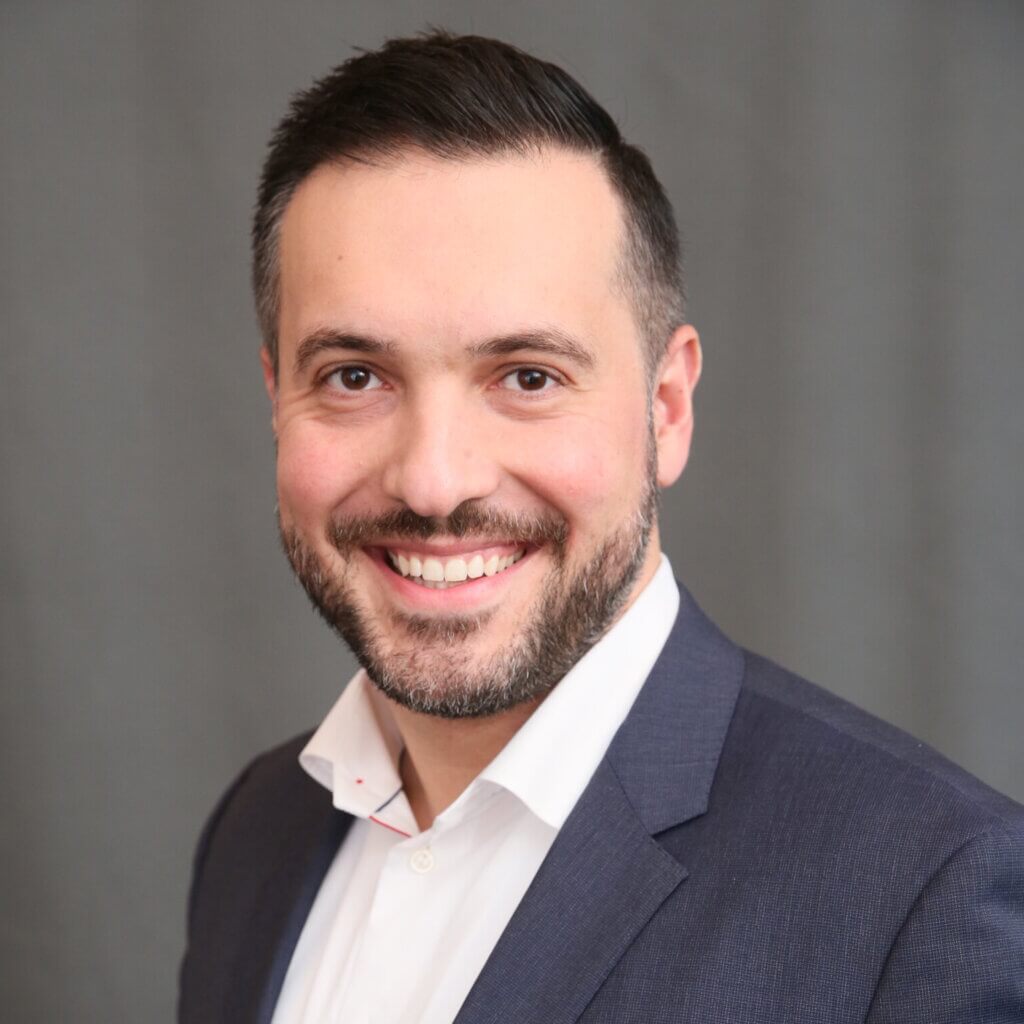
United States
Global Sector Head, Private Equity
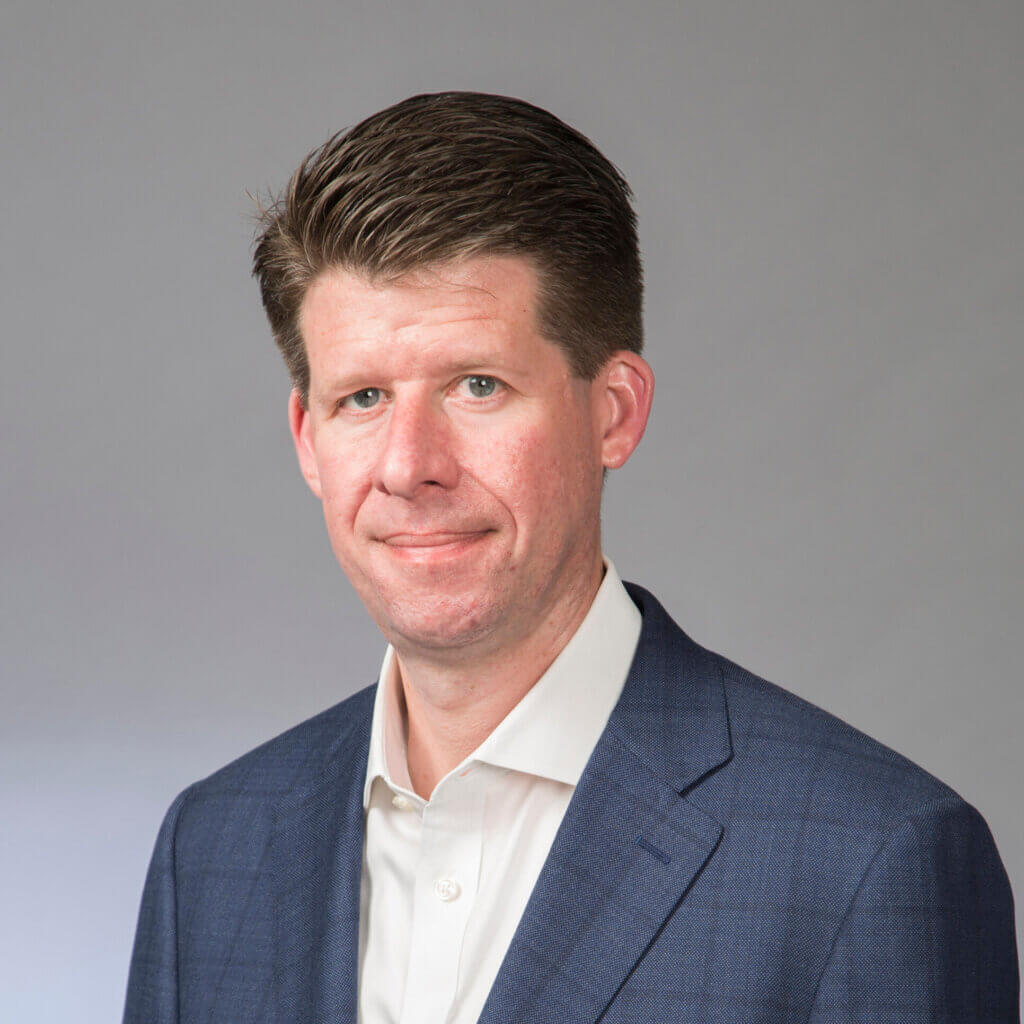
United States
Global Sector Head, Debt Capital Markets
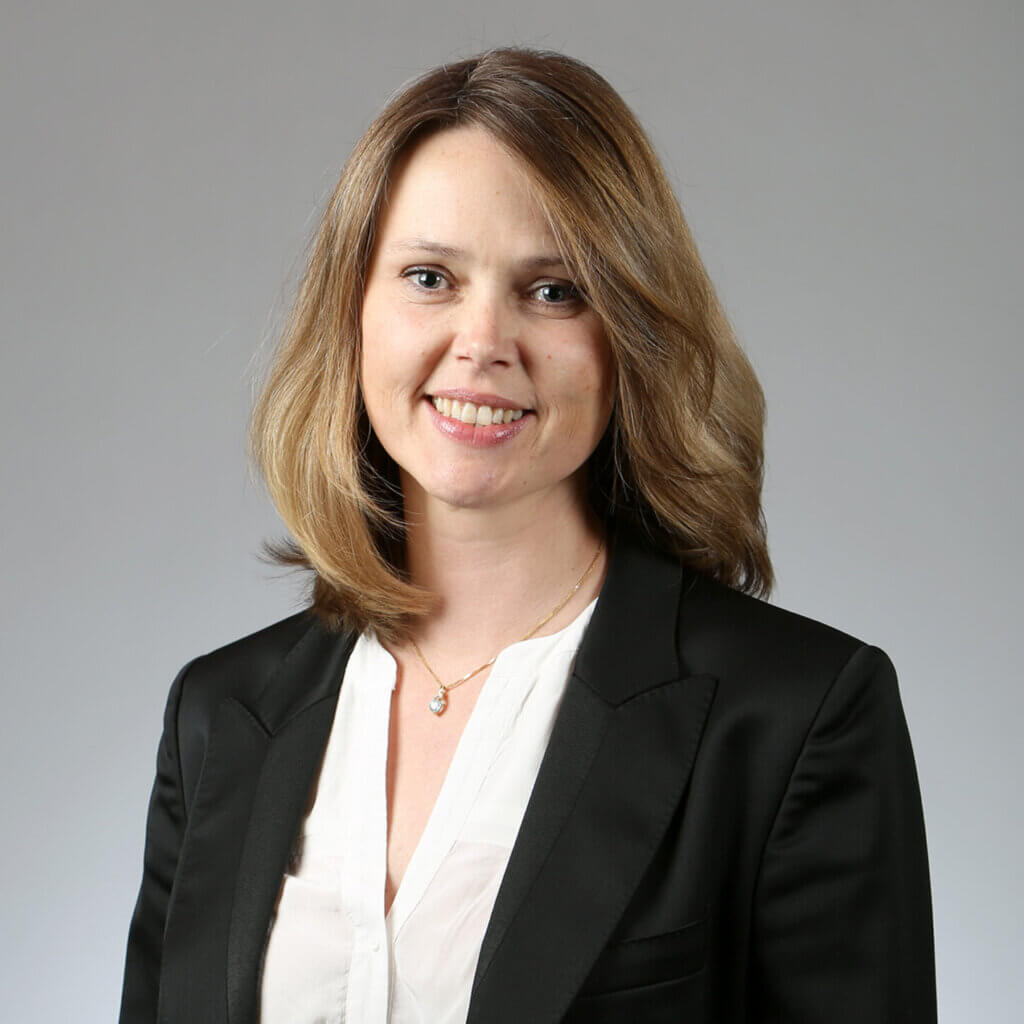
Luxembourg
Global Sector Head, Real Assets
News
The observatory uses figures from a sample of 125 Luxembourg management companies to reveal key trends in the industry.

We’re proud to share that we’ve been listed in PwC’s Observatory for Management Companies 2024 Barometer and that we’ve come out even better than before. This year we’ve seen another jump in our rankings with the highest AUM progression (25%) in both Top 10 Luxembourg AIFMs and Top 10 Third Party ManCos.
We’re particularly pleased that to be listed as the only company with true Luxembourgish origins.
Alter Domus is proud to have moved up in the following rankings:
Top 10 Luxembourg AIFMs as of 31/12/2023:
Moving from 7th to 6th with the highest AUM progression of 25%
Top 10 Third Party ManCos as of 31/12/2023:
Moving from 8th to 7th also with the highest AUM progression of 25%
A rise of 3 places since 2021!
With 5, 000 professionals in 23 jurisdictions speaking 51 languages and having invested €103m in tech development and M&A, Alter Domus are unrivalled in our ability to provide end-to-end support for clients launching, managing and administrating regulated and unregulated investment vehicles. We offer our third-party AIFM Services in both Luxembourg and Ireland. To find out more about how we can support you in the alternatives space, please get in touch.
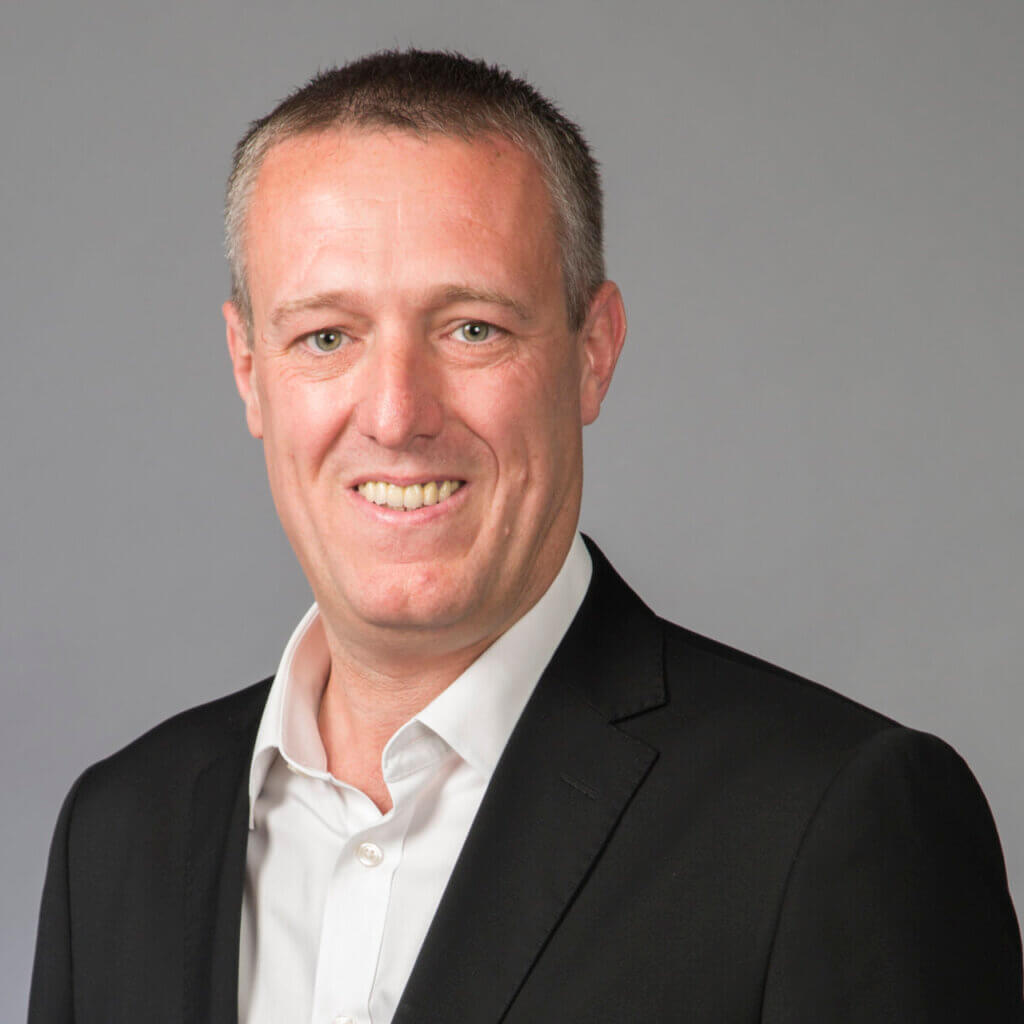
Luxembourg
Head of Management Company Luxembourg
Insight
Chief Operating Officer, Mike Janiszewski spoke to PEI Fund Services report about the value of outsourcing administrative functions to respond to the increased market demand from individual investors. Get in touch to partner with a proven third-party provider to harness this potential.

Mike Janiszewski, Chief Operating Officer, spoke to PEI Fund Services report about the value of outsourcing administrative functions to respond to the increased market demand from individual investors. With about half of global assets under management (AUM) held by individuals, private fund managers are keen to tap into this vast potential. Large asset managers, like Blackstone, have ambitious goals for increasing their retail capital offer. However, accommodating individual investors in alternatives, presents significant complexity- complicated structures, dealing with varying regulations, individual tax burdens and increasing back-office administration.
Mike opined that “Taking on investment from private wealth investors will require a step-change in middle- and back-office infrastructure” Private markets have responded to this already and multiple investment structures are being adopted to accommodate the differing needs of individual investors, as well as new distribution channels and digital platforms. At AD, we have been specializing in this for the past 20 years; delivering for our clients via a combination of jurisdictional, technological and administrative expertise.
Ultimately, leveraging technology for automation and data streamlining must come alongside partnership with third-party providers who can harness new tools for great success. Reach out to to find out more.
Keynote interview
Demetry Zilberg, Chief Technology Officer was interviewed in PDI’s Tech, AI & Fund Services edition about the Alter Domus technology journey, as well as artificial intelligence and its impact on private credit. He highlights the importance of managing the gap between hype and practical business applications, prioritizing opportunities and mitigating risks.

Interview
Q You have recently joined Alter Domus as chief technology officer. What background do you bring to the role, and how is that perspective useful for Alter Domus and its clients?
Most recently, I was a chief technology officer at Wells Fargo bank. Before that I was the CTO of the financial data and software company FactSet, which was my final role there over a 20-year period. In these positions I’ve been involved with a vast array of initiatives, from developing mobile capabilities and addressing challenges such as identity protection and fraud prevention to developing and executing artificial intelligence strategies and implementing generative AI.
Alter Domus is my first experience in a private equity-owned company. The mandate of the senior team here is clear: how do we use technology to make our services more efficient, more intuitive, and more impactful for our clients?
At Alter Domus, my team owns all the technology and app development efforts for the business, as well as the data analytics and engineering and some of the product strategy from a technology perspective. The goal is to help continue to scale an already rapidly growing business and drive several transformative initiatives, with one area of focus being the data and analytics business, where we see a lot of potential.
Q What is your perspective on AI and its adoption in private markets?
AI has been fundamental to many companies and products for a number of years. Companies such as Tesla have been working on self-driving vehicles for more than 10 years, and those are inherently AI-enabled. So, AI is not new.
What has changed is that last year saw probably one of the most successful marketing campaigns ever launched when Open AI unveiled its initial version of ChatGPT. We all started talking about generative AI and what ChatGPT would mean for us. Adoption of that tool went from zero to 100 million active users in just two months, making it the fastest growing consumer application in history. That showed the art of the possible with generative AI, and immediately drove that conversation in boardrooms.
Right now, what is important for business is to thoughtfully manage the gap between AI hype and practical business applications. Businesses need to prioritize opportunities in order of obtainability and then manage communications with stakeholders to create meaningful outcomes. Too often, companies become focused on what’s new, rather than what’s best, or more to the point in Alter Domus’s case, what’s best for our customers.
Q What steps are service providers like Alter Domus taking in AI?
We believe that before any concrete actions are taken in AI development, governance issues have to be addressed. Protecting both our clients’ data and business at large as well as our own is of the utmost importance.
It’s best practice to have a formal and mature intake process for AI applications and a multidisciplinary panel that considers and prioritizes opportunities for the business, as well as any implementation guardrails and cyber-security considerations. That panel should include representatives of technology, business, regulatory compliance and HR. Putting that disciplined collective effort into mitigating risks like data leaks or data breaches is essential.
The other element of this is the technology itself. The way a company like Alter Domus approaches that is with a platform construct. Instead of focusing on underlying infrastructure (such as GPUs), we chose to partner with cloud providers that offer robust ‘out of the box’ solutions that enable us to experiment, validate, and deploy AI solutions with little friction. Leveraging our partners that have robust end-to-end services that aggregate versus trained or partially trained algorithms is a smarter method for us.
For example, we have a relationship set up with AWS using some of their services, such as SageMaker and Bedrock, which deliver pre-packaged platforms of large language models. That is central to our strategy because we get immediate access to enhanced technology and capabilities.
One of the ways we approach AI governance is to consider use cases in three buckets: ready-made solutions we can buy (such as co-pilots that can be easily integrated into our workspace productivity tools); capabilities and tools, built by Alter Domus, that enhance the efficacy of our employees’ service delivery to clients; and AI capabilities embedded into products, delivering sophisticated analytical capabilities and meaningful insights to our clients.
Q Why is private credit a particular area of focus, and what advances are being made there?
We feel the private credit space really lends itself to the last two of those three categories. There are tens of millions of unstructured documents and data sources in private credit, with many in PDF, Excel or even fax format.
We have a product called Digitize that processes 30 million documents, extracting, classifying, and incorporating content into client-facing products. Then it becomes easier to use generative AI and the analysis of that data requires less human input, leading to better outcomes, faster turnaround times and cost savings for clients.
Q Is AI replacing humans in the use cases you see?
I think for the foreseeable future, AI is about creating substantially better tools for humans to use, but we still need humans. Instead of using manual tools to deliver outputs, you can speed up processes and get more reliable results using AI, and that is more rewarding work for the humans involved.
For now, we still need humans to oversee those processes, to check that AI is working properly, which means there is an upskilling opportunity and AI is simply taking away the more mundane elements of tasks. In the longer-term, AI will free our teams to focus on more strategic areas of work.
Q What do you expect to be the most exciting developments in this area in the near future?
We are focused on building out our data and analytics business as a comprehensive data platform making use of AI capabilities. That will take data from various siloes and make it available in a very secure and compliant way for our clients. We plan to employ AI to enable the data platform to deliver actionable insights and new analytical capabilities for our clients.
The key element in all of this is that you have to ‘feed the machine’: AI needs data to really learn and operate in the most effective way, and we sit on a treasure trove of data. We make certain to prioritize the use cases that will have a beneficial impact on our clients. We want to give them more visibility into their funds than they have ever had before, allowing them to make faster and better formed decisions.
Keynote interview
Tim Toska and Emily Ergang Pappas were interviewed in June’s Buyouts Secondaries Report. They outlined how the SEC private fund rules will provide a regulatory framework around GP-led secondaries, ultimately supporting their continued growth.

Interview
Q To what extent do the SEC’s private fund rules impact the secondaries industry and how have these changes
been received?
Tim Toska: The US Securities and Exchange Commission’s new private fund adviser rules are certainly far reaching and there are significant changes involved. But, as it relates to the secondaries industry, it is the mandatory requirement for a fairness opinion or valuation in every GP-led secondaries deal that is the most directly relevant. There are also new disclosure requirements around material business relationships and activities, which must be formally documented and posted to a portal. In many instances, both are already happening, but the rules mean there is now a regulatory requirement to take these extra steps in what might well be a time sensitive transaction. That can always be a cause for concern. Managers want to be able to proceed with deals in as frictionless a way as possible. That said, compared to some other aspects of the rules, these provisions are unlikely to keep many awake at night.
Q Could a clearer regulatory framework around GP-led secondaries be welcomed, particularly when it comes to ensuring LPs are comfortable with these deals?
TT: Absolutely. This is a fast-growing market, and it has been exciting to see GP-led secondaries emerge as a valid avenue for generating liquidity, alongside traditional M&A and IPOs. But there are clearly some inherent conflicts of interest that need to be carefully managed because the last thing anyone wants is for questions to be asked in hindsight, should a deal not turn out as planned. These are not arms length transactions and so they lend themselves to being second guessed. Increasing the regulatory framework helps eliminate any of that doubt and so from the perspective of the ongoing growth and maturity of the sector, I think it is largely to be welcomed.
Emily Ergang Pappas: It also goes long way towards ensuring all investors are in the same situation. Yes, there were many funds that were already including fairness opinions in their deals and going the extra mile in terms of transparency, but now investors in every fund will be afforded that same level of protection from potential conflicts of interest. The codification of best practice means all investors are now in the same boat.
Q What modifications have we seen since the initial rules were proposed and where are we now in terms of when the rules will be enacted?
EEP: We are in a unique position as fund administrators in that these rules don’t technically apply to us, but they will apply to most of our clients and will affect the services we provide. We are therefore keeping a close eye on how things develop. There are a number of lawsuits that are ongoing, and no-one is entirely sure what the timelines are likely to be, but we are certainly paying close attention. I would agree with Tim though that this rule is not as controversial as some of the others. We have been heavily focused on the quarterly statement rule, for example, because there is a lack of clarity there and because it impacts our role as administrators particularly. There have already been some modifications made between the proposed rules and final rules when it comes to secondaries, with greater flexibility to choose between either a fairness opinion or a valuation. Beyond that we are in a wait and watch holding pattern, considering what the eventual outcomes are going to mean for clients.
Q Given the GP-led market’s growth, is it reasonable to expect it will be subject to greater regulatory scrutiny going forward, beyond these specific rules?
EEP: The short answer is yes, absolutely. Anytime something grows in size and popularity to this extent, particularly when it involves readily identifiable conflicts of interest, it is inevitable that the SEC and other regulators around the world are going to want to put some parameters in place to ensure investors are adequately protected.
Q Against this regulatory backdrop, how are you seeing the GP-led secondaries market evolve?
TT: I would say that the GP-led secondaries market has now reached a stage in its maturation journey where it sits side by side with other strategies. Certainly, in terms of deal volumes, GP-leds have been at or about 50 percent of the overall secondaries market for the past few years. In fact, there has been insufficient capital available to meet demand from GPs, who now view this as a viable exit route and means to generate liquidity in an environment where liquidity has been in short supply.
Q Will that growth trajectory continue unabated as and when M&A markets return?
TT: I believe that it will. There will always be reasons for GPs to pursue this type of deal, regardless of what is happening in the broader macroeconomic environment. It is true that a revival in M&A will lessen the need for GPs to turn to continuation vehicles to generate distributions for investors. However, there will always be sectors, or segments of the market, that are facing structural or economic hardships and where secondaries capital is required.
Furthermore, there will always be situations where the timing just isn’t right for a GP to exit, despite the fact it is running up against the limits of a fund’s life. Due to the intense growth in volume and awareness over the past few years, GPs know these GP-led deals are something they will always have in their back pocket.
Q The GP-led market is widely believed to be one of the most undercapitalized corners of private markets. How do you see the buyside evolving going forward?
TT: The secondaries market, and GP-led secondaries in particular, are undercapitalized relative to the supply of transactions in the market. But I don’t necessarily view that as a negative. In fact, in many ways it can be viewed as a positive, because it ensures buyers are able to originate and diligence opportunities in a disciplined manner rather than feeling any pressure to put money to work. Of course, we don’t want to see that undercapitalization continue forever. But it is no bad thing for supply to outpace demand as the asset class matures. That will help ensure everyone concerned has positive experiences, including LPs that decide to roll and the new investors that come in. The more of these win-win situations that we see come to fruition, ultimately leading to successful realizations over time, the better it is for the asset class in the long term.

United States
Global Sector Head, Private Equity
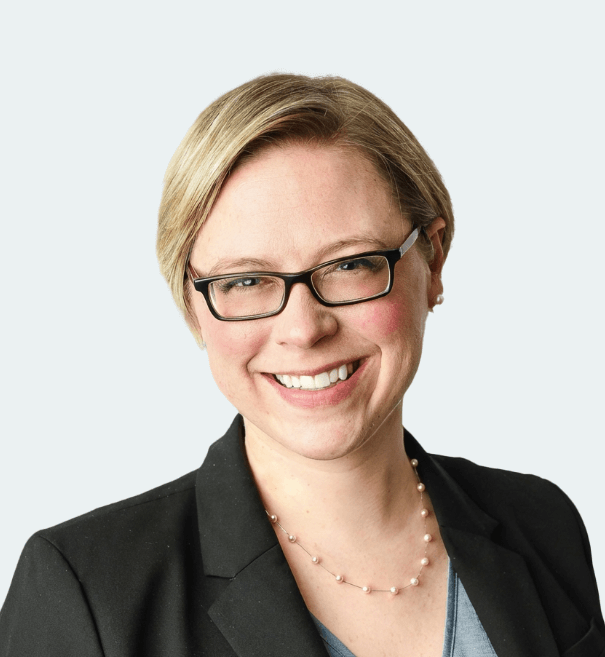
United States
Global Head of Legal
Keynote interview
Tim Toska was recently featured in June’s PEI Fund Services Report where he discussed how private equity firms are increasingly turning to tech solutions to support everything from investor onboarding to portfolio management.

Interview
Q How far has private equity come in terms of its willingness to leverage technology to support middle-and back-office functions?
The industry has certainly come a long way, particularly over the past few years. The ability to leverage technology to support operations has moved from a nice-to-have to a must-have. A lot of that movement has been driven by investors in terms of the timeliness and granularity of the data that they are demanding, and that has placed an unprecedented emphasis on efficiency. Technology has inevitably been part of the solution, but this isn’t something that investors have foisted onto managers. It doesn’t work that way – it is something that needs to be embraced and we have undoubtedly seen a marked shift in managers’ willingness to do just that.
Q How is technology being used in the investor onboarding process?
Onboarding is a fantastic use case for technology because it is an area in which the private markets desperately need to become more efficient. Historically, onboarding has involved a huge amount of back and forth across paper trails, e-mail communication and calls. The ability to digitalise subscription docs and streamline AML and KYC processes using tech tools that weren’t available just a few short years ago, is proving transformative for the industry.
It is also incredible to see how far we have come in terms of LP portal development within a relatively short period of time. Just 15 years ago – which isn’t all that long ago, in the grand scheme of things – investors were receiving call notices by fax machine or even mail.
These investor portals have greatly improved, and continue to greatly improve, communication with LPs, while also creating significant cost and time efficiencies both for the manager and the underlying investor.
Q In light of the US Securities and Exchange Commission’s new private fund rules, how important is technology going to be in meeting regulatory demands?
Reporting requirements are intensifying as a result of regulation, including the new SEC rules, but they are intensifying in re sponse to investor demands in any case. It is therefore critical to have timely and accurate data at your fingertips as a private equity firm or administrator, which is exceedingly difficult without the use of technology. Technology can help with the sourcing of data and with moving that data across channels, which is what needs to happen with any reporting process. Again, technology has really become a must-have in meeting the additional demands that fund managers face today.
Q What are the foundational steps that firms need to take to maximise the potential of the data that they hold?
Small firms can probably handle data requests and analysis in Microsoft Excel. That becomes increasingly difficult to manage, however, as the business scales. It is therefore crucial that firms have a regimented plan around data from the outset, otherwise things can quickly become complicated, particularly when it comes to establishing a single source of truth.
Back-office teams, investment teams and marketing teams, for example, may hold different data sets that can often overlap. That data needs to be aggregated, normalised and validated until everyone is confident that the data they are accessing is based on the most accurate and up-to-date information. Only then can firms consider moving on to the next step of gleaning accurate and meaningful insights from the data and automating processes.
Q To what extent are private equity firms leveraging automation tools and data analytics today and what are the most interesting use cases?
At the highest possible level, there are three areas where private equity is exploring the use of automation: operations, portfolio management and investment decision-making. It is in the operational arena that we first saw many of these automation tools come into play. Any time you are dealing with a recurring process, such as an invoice payment, for example, that is a task that can be streamlined through automation.
Communication with portfolio companies, meanwhile, is another tangible use case for automation. Managers require businesses to provide regular updates on financial performance that are then fed into a data model upstream. Automation can really help in processing that information, regardless of the format in which it arrives. There are tools that can be used to standardise the different balance sheet and income statements coming from portfolio companies, allowing the firm to compare apples with apples and to feed the data into valuation models. In some cases, this data is coming from hundreds of different portfolio companies and so the ability to process and standardise it without manual inputting is clearly a massive efficiency gain. Teams that would have acted as data aggregators are instead able to spend more time reviewing and analysing the output.
By contrast, we are still in the earliest possible stages when it comes to automating investment decision-making processes. The focus for GPs right now is very much centred on creating a single source of truth, then employing automation tools to pull the relevant data so that humans can make decisions based on the best possible information.
Q What are the next steps for private equity when it comes to tech adoption?
What is most important is that we have now reached a stage where there is near-universal recognition of the importance of tech adoption. Just a few years ago, not everyone was necessarily sold on its benefits and tech adoption certainly wasn’t always viewed as the priority. That situation has flipped entirely. Of course, different firms are at different stages of that journey, but thanks to the now ubiquitous coverage of the benefits of automation in the mainstream media, we have got over the most significant hurdle, which is the willingness to embrace what technology has to offer.
It is important to recognize that no one is trying to get to a point where automation software is being used to identify an investment target, carry out due diligence and then spit out a yes or no answer as to whether or not the firm should proceed with that deal. No one is looking to go to those extremes. Instead, firms are experimenting with using technology to identify market trends and carry out sensitivity analysis, and then build in the human judgement that sets them apart. The use of technology in private equity has never been about replacing people. Instead, it has been about maximizing the potential of that human resource.
Conference
David Traverso and TJ Veneris are looking forward to networking and discussing what matters in private equity and venture capital at the PEI Private Funds CFO Network Chicago Roundup this June 6. Reach out via the contact below.

North America
Managing Director, Sales at Alter Domus North America
Conference
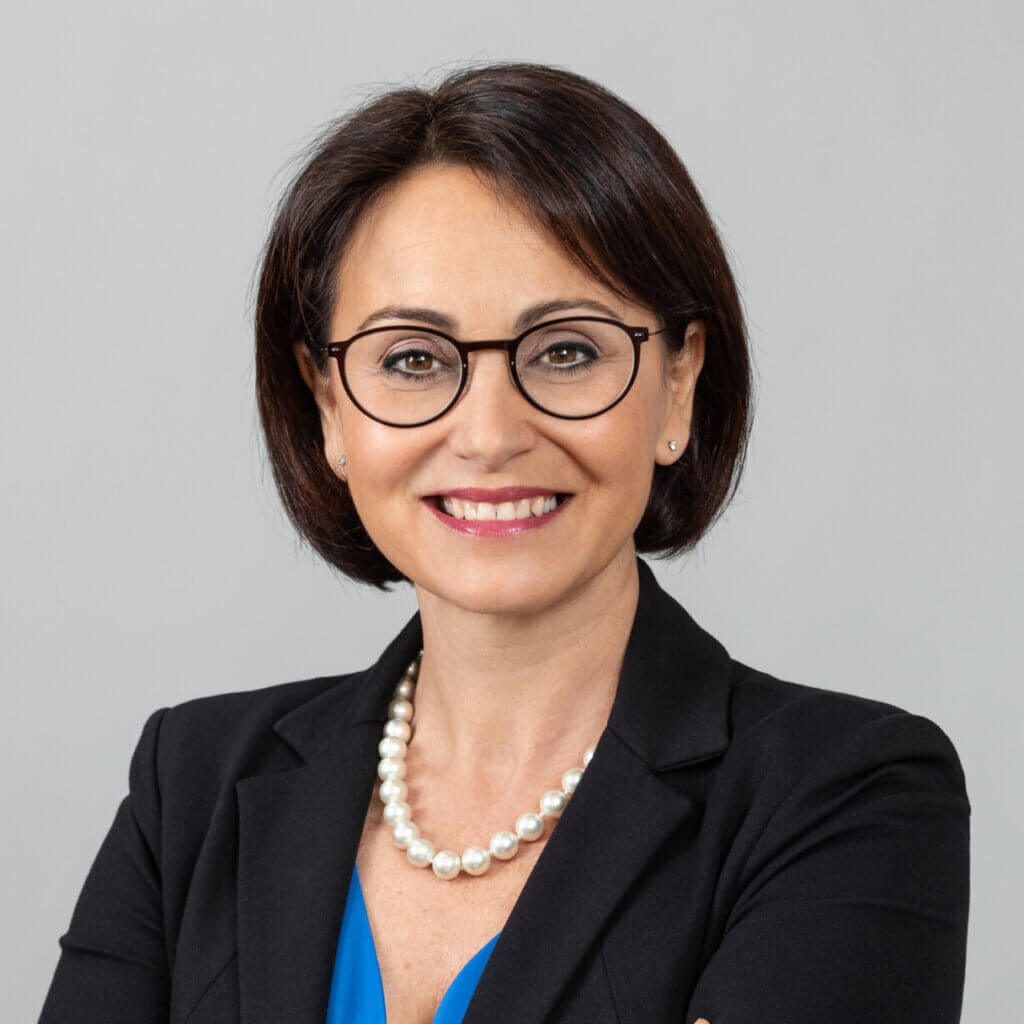
Luxembourg
Group Director, Key Accounts